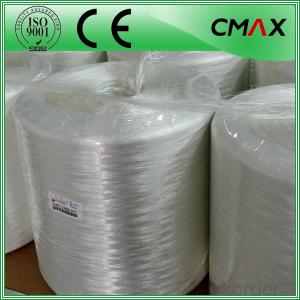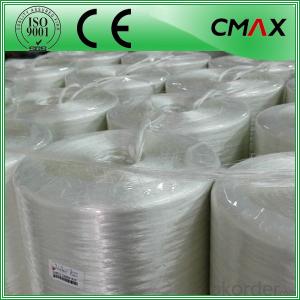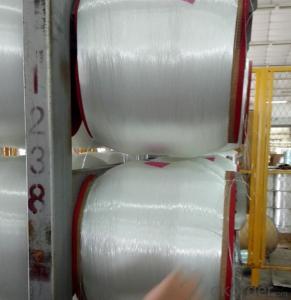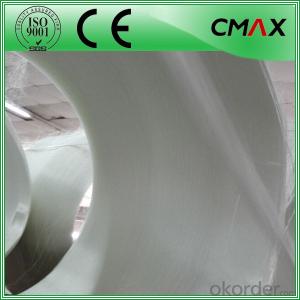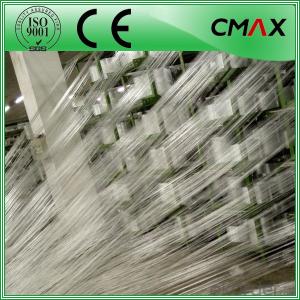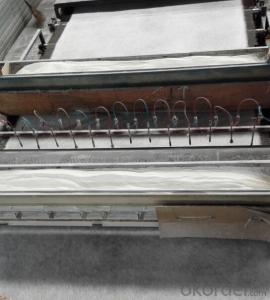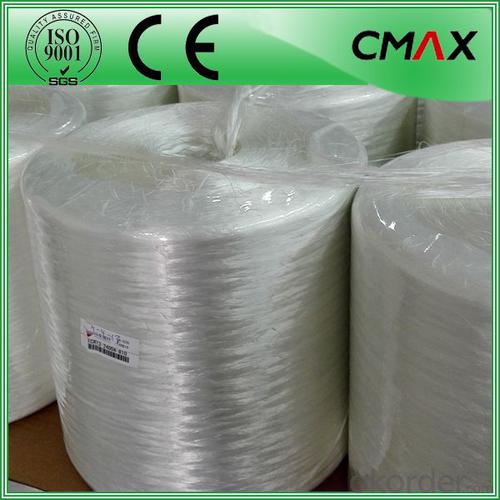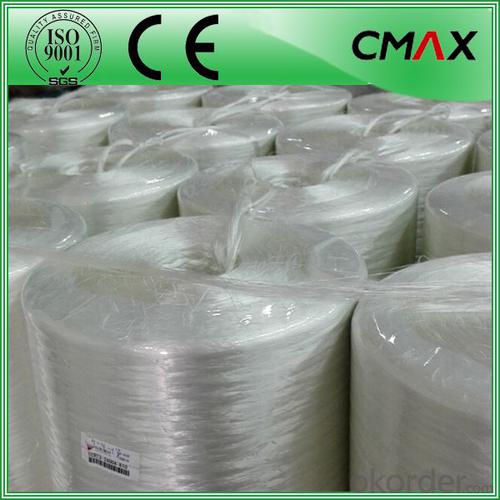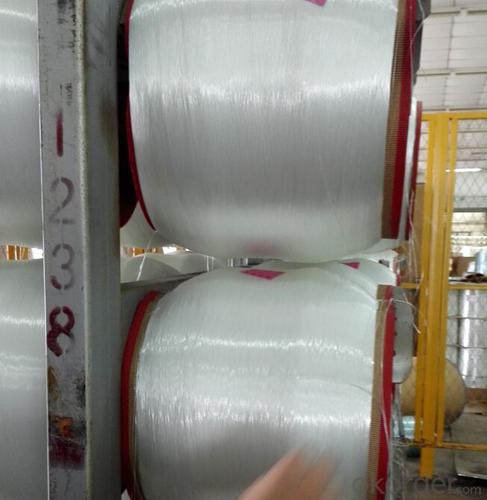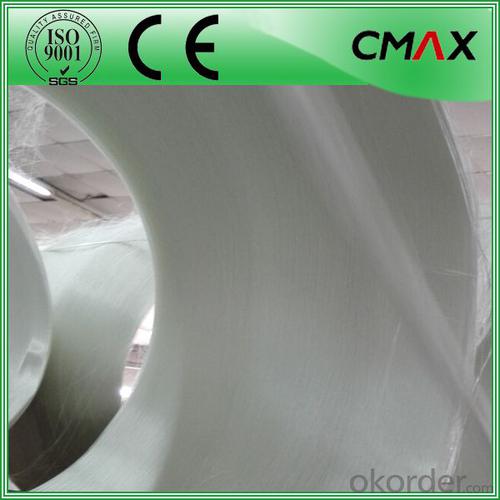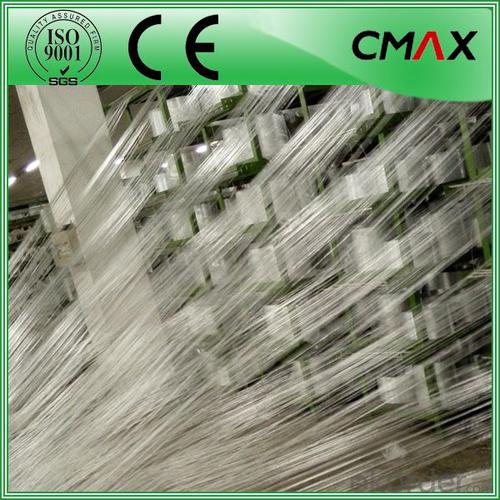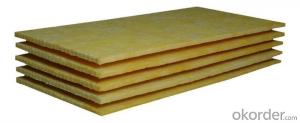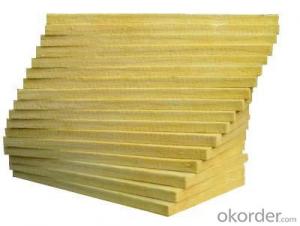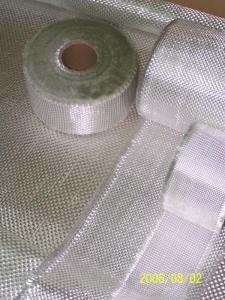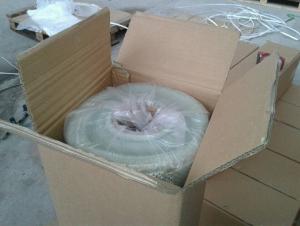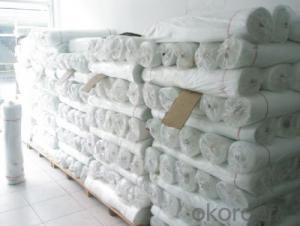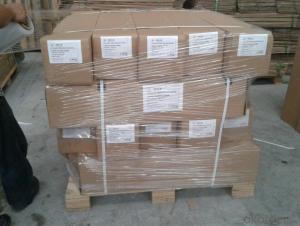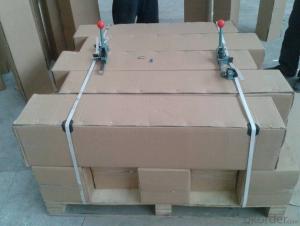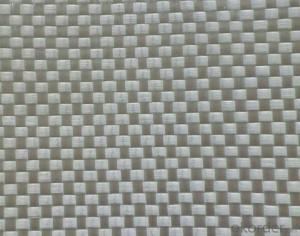Direct Roving Fiberglass Roving Yarn E-Glass Fiberglass Mat Tissue
- Loading Port:
- Shanghai
- Payment Terms:
- TT OR LC
- Min Order Qty:
- 1 m.t
- Supply Capability:
- 100000 m.t/month
OKorder Service Pledge
OKorder Financial Service
You Might Also Like
Direct Roving Fiberglass Roving Yarn E-glass
Introduction:
E-glass sprary-up roving, fiberglass gun roving, fiberglass roving is coated with a silance-based sizing, compatible with unsaturated polyester, vinyl ester and polyurethane resins.
It is a versatile general purpose spray-up roving used to manufacture boats, bathroom sinks ,yacht, sanitary ware, swimming pool and automotive parts and also pipe by centrifugal casting process.
Product Features:
1)Silane based coupling agent which delivers most balanced sizing properties.
2)Special sizing formulation which delivers good compatibility with martix resin.
3)Consistent fiber linear density,good mold ability and dispersion
4)Excellent mechanical properties of composite products
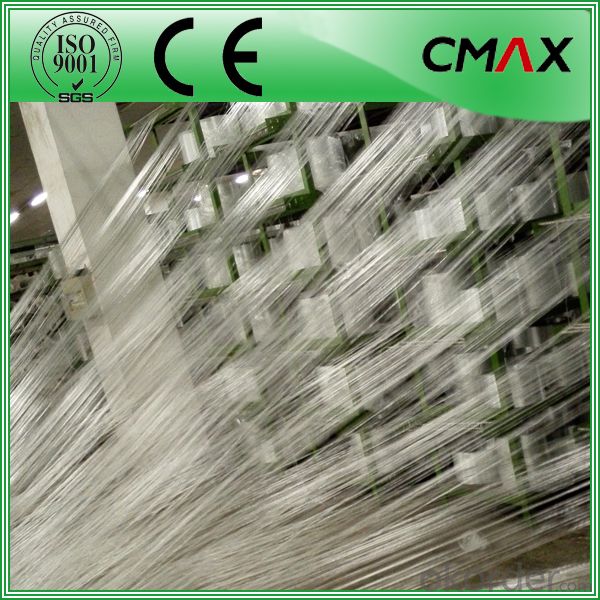
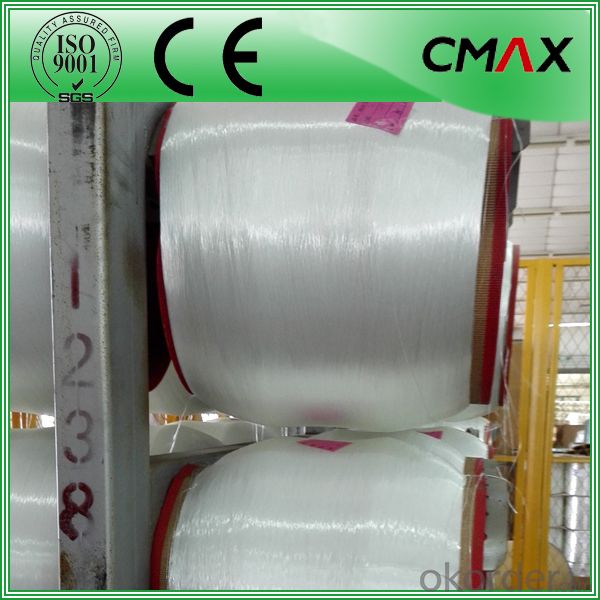
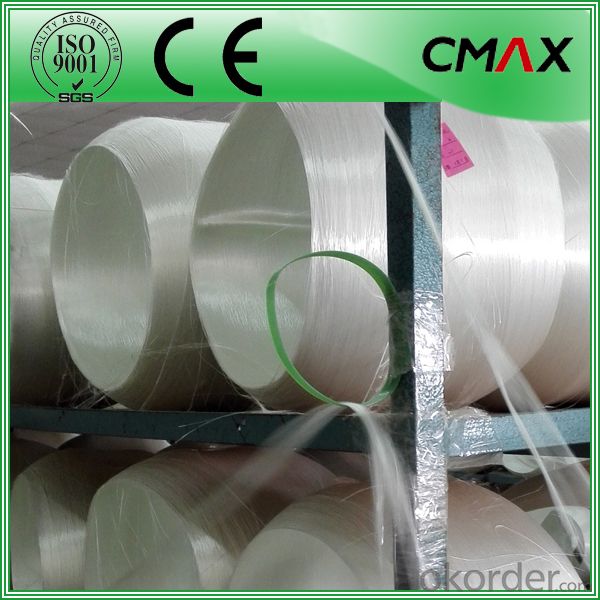
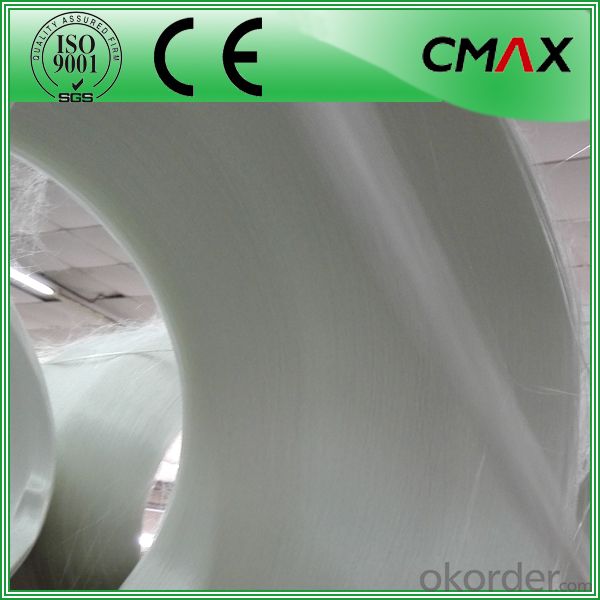
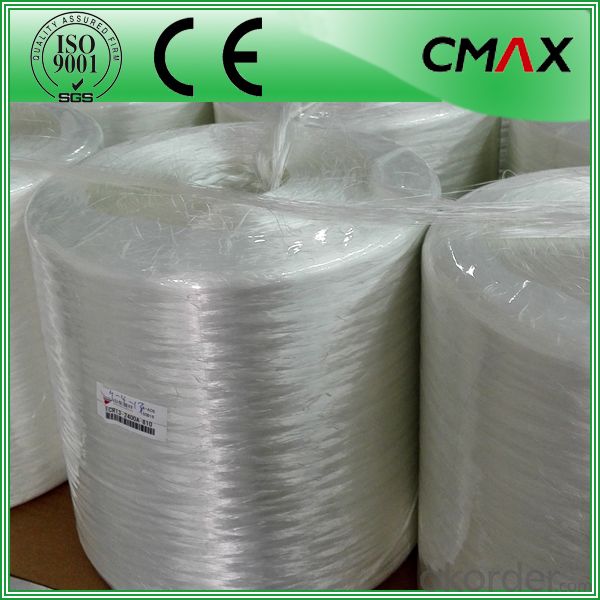
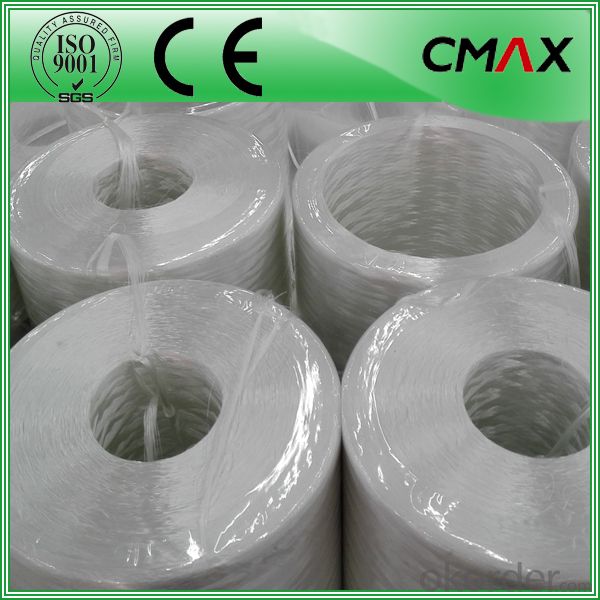
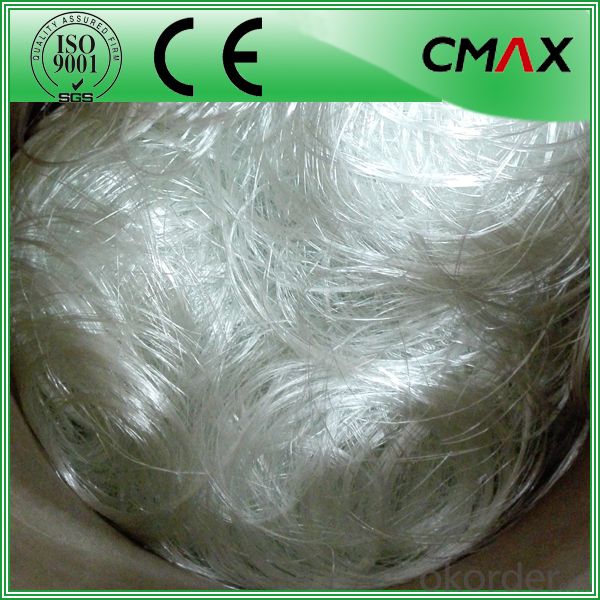
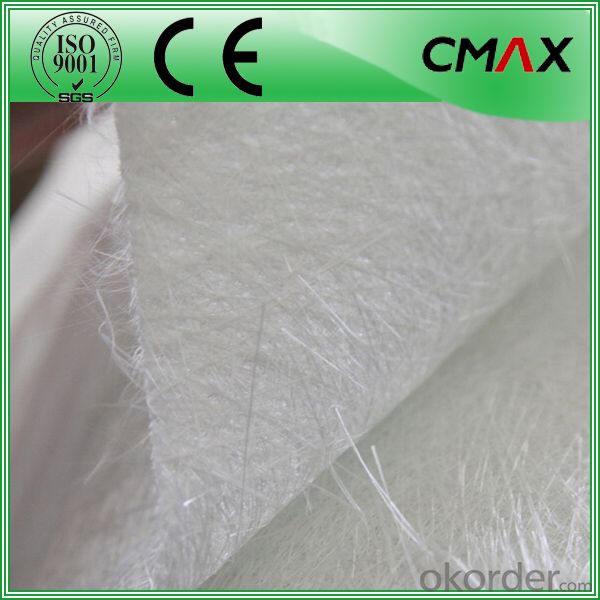
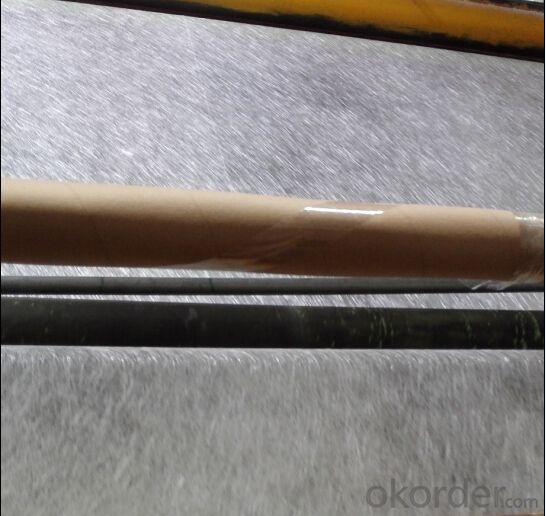
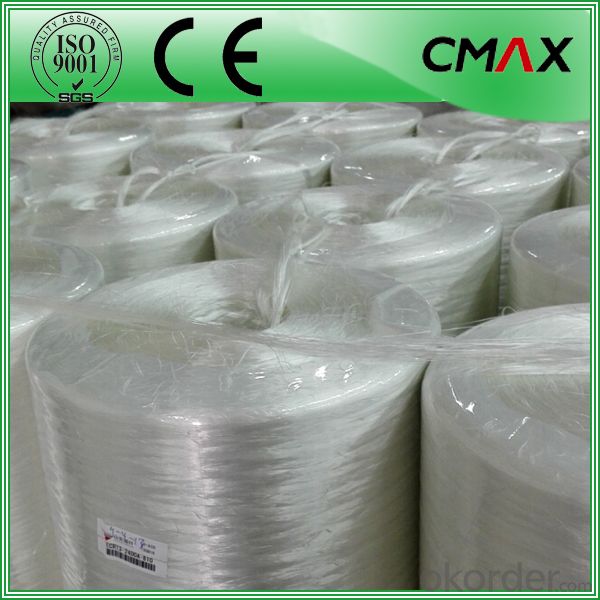
Packaging:
Product is manufactured in form of a roll wrap on a paper tube then after packed in a plastic bag and placed in a cardboard carton. Rolls can be loaded in a container directly or on pallets.
Deposited:
Chopped Strand Mat should be stored in dry, cool, clean and rainproof area. Recommended temperature range of storage is between 15-30 and relative humidity between 40%-70%.
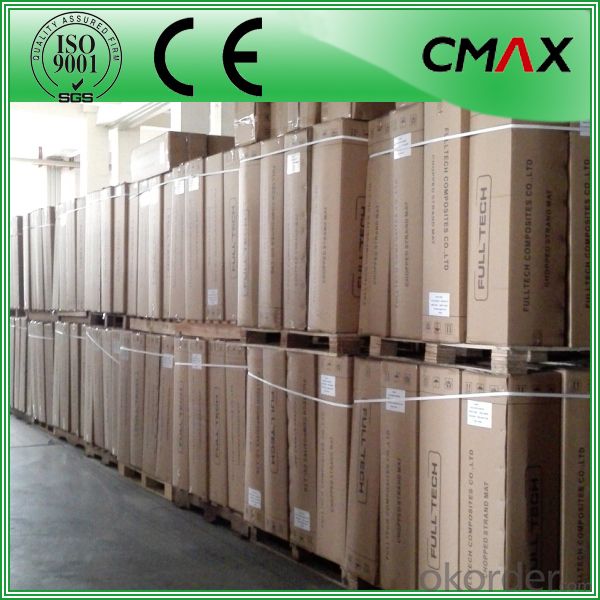
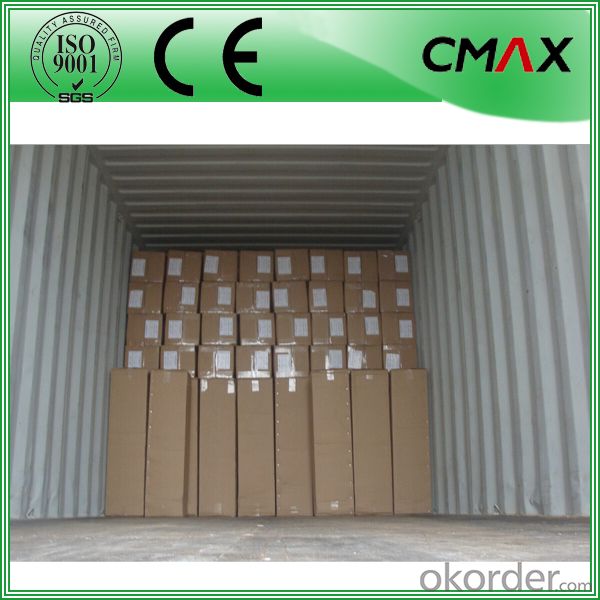
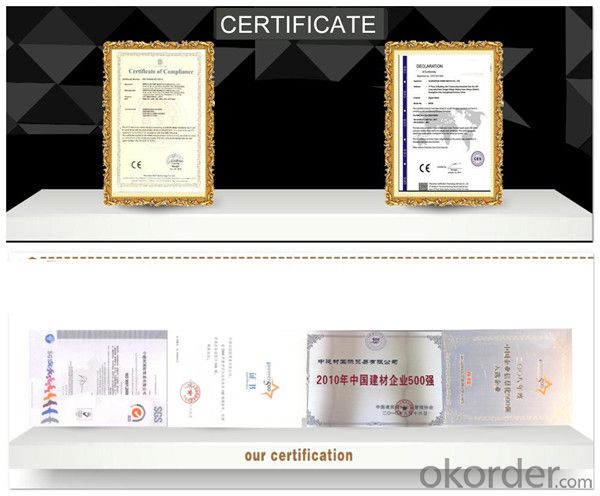
FAQ:
Is sample available ?
Yes, we provide the free samples, but customers themselves need pay the shipping fee
What's your MOQ?
Our MOQ is one 1*20' full container loading
How do you pack the fiberglass
(1) First, the mat is in roll packed in White PE fIlm.
(2) Then the rolls packed in the carton
4.Which knid of payment terms can you accept?
We can accept 30% prepayment, 70% payment before shippment. LC is also accepted
- Q: Is fiberglass mat tissue suitable for underground applications?
- Yes, fiberglass mat tissue is suitable for underground applications. It is commonly used in underground construction projects due to its excellent strength, durability, and resistance to water and corrosion. Additionally, fiberglass mat tissue provides insulation and reinforcement, making it ideal for underground applications such as tunnels, basements, and pipelines.
- Q: Can fiberglass mat tissue be used for electrical transformers?
- No, fiberglass mat tissue cannot be used for electrical transformers. Electrical transformers require materials with specific electrical insulating properties, such as paper or oil-impregnated materials, to ensure efficient and safe operation.
- Q: How does fiberglass mat tissue perform in terms of acoustic insulation?
- When it comes to acoustic insulation, fiberglass mat tissue excels. Its fine fiber composition allows it to effectively absorb sound waves and minimize airborne noise transmission. The dense structure of the mat tissue enhances its soundproofing capabilities, making it a top choice for situations where noise control is essential. Furthermore, fiberglass mat tissue also boasts superior thermal insulation properties, further enhancing its acoustic insulation performance. In summary, this material is highly effective at reducing sound transmission and creating tranquil environments.
- Q: How does fiberglass mat tissue perform in terms of chemical resistance?
- Fiberglass mat tissue generally exhibits excellent chemical resistance properties. The material is typically made from glass fibers that are held together by a binder, and this composition allows for resistance to a wide range of chemicals. Fiberglass mat tissue is commonly used as a reinforcement in composite materials, such as fiberglass-reinforced plastics (FRP), due to its ability to withstand exposure to various chemicals without degrading or deteriorating. The chemical resistance of fiberglass mat tissue can vary depending on the specific type and quality of the material, as well as the specific chemical being encountered. However, in general, it is highly resistant to most acids, alkalis, solvents, and other corrosive substances. This resistance makes it a suitable choice for applications where the material may come into contact with aggressive chemicals, such as in chemical processing plants, water treatment facilities, or storage tanks. It is important to note that while fiberglass mat tissue is generally chemically resistant, it may not be completely impervious to all chemicals. Some highly concentrated or specialized chemicals may still have the potential to cause damage or deterioration over time. Therefore, it is always advisable to consult the manufacturer's specifications and recommendations for specific chemical resistance information before using fiberglass mat tissue in a particular application. Overall, fiberglass mat tissue is known for its strong chemical resistance properties, making it a reliable choice for applications where exposure to chemicals is expected.
- Q: Is fiberglass mat tissue resistant to alkalis?
- Yes, fiberglass mat tissue is resistant to alkalis. It is commonly used in construction and industrial applications where it may come into contact with alkaline substances such as cement or concrete. The fiberglass mat tissue is designed to have a high resistance to alkalis, ensuring its durability and longevity in these environments. This resistance is due to the chemical composition and structure of the fiberglass, which allows it to withstand the corrosive effects of alkalis without degradation. Therefore, fiberglass mat tissue is a reliable choice for projects that involve exposure to alkalis.
- Q: What are the typical dimensions and roll sizes of fiberglass mat tissue?
- Fiberglass mat tissue dimensions and roll sizes may vary depending on the product and manufacturer. Typically, rolls of fiberglass mat tissue come in widths ranging from 1 to 6 feet and lengths ranging from 100 to 1000 feet. The thickness of the tissue can range from 0.5 to 1.5 millimeters. Certain manufacturers may provide tailored sizes and lengths to meet specific project needs. To obtain the precise dimensions and roll sizes of fiberglass mat tissue, it is advisable to consult the manufacturer or supplier.
- Q: What are the different weights available for fiberglass mat tissue?
- Fiberglass mat tissue, which is widely used in various industries including construction, automotive, and marine, comes in different weights or thicknesses to cater to different applications and requirements. The weight of fiberglass mat tissue is usually measured in grams per square meter (gsm) or ounces per square yard (oz/yd²). Typically, the weights available for fiberglass mat tissue range from around 30 gsm (1 oz/yd²) to 150 gsm (5 oz/yd²) or even higher. The weight of the tissue determines its strength, rigidity, and durability. Lightweight fiberglass mat tissue, such as those weighing around 30-50 gsm (1-1.5 oz/yd²), is commonly used for applications where a high level of flexibility and conformability is required. These lighter weight tissues are often used in the production of laminates, reinforcing materials, and lightweight composites. Medium weight fiberglass mat tissue, usually ranging from 70 gsm (2 oz/yd²) to 100 gsm (3 oz/yd²), provides a balance between flexibility and strength. It is frequently used in applications such as roofing, insulation, and wall panels, where structural integrity and thermal insulation properties are important. Heavyweight fiberglass mat tissue, which can weigh between 120 gsm (4 oz/yd²) and 150 gsm (5 oz/yd²) or more, offers excellent strength and rigidity. This type of tissue is commonly used in demanding applications like boat hulls, automotive body parts, and industrial equipment, where durability and resistance to impact and stress are crucial. It is important to note that the availability of different weights of fiberglass mat tissue may vary depending on the manufacturer and the specific requirements of the application. In some cases, custom weights can be produced to meet unique project needs. In conclusion, fiberglass mat tissue comes in a range of weights to suit different applications. Choosing the appropriate weight is crucial to ensure optimal performance and long-term durability in various industries.
- Q: Can fiberglass mat tissue be used for repairing fiberglass jet skis?
- Indeed, fiberglass mat tissue proves to be a valuable asset when it comes to restoring fiberglass jet skis. This material is frequently employed in fiberglass repairs due to its ability to fortify and reinforce afflicted regions. Its versatility allows for its use in a multitude of fiberglass repair scenarios, such as rectifying cracks or punctures found in jet skis. When skillfully applied, fiberglass mat tissue effectively reestablishes the jet ski's structural soundness, guaranteeing a resilient and enduring mending.
- Q: Can fiberglass mat tissue be used for roofing applications?
- Yes, fiberglass mat tissue can be used for roofing applications. It is commonly used as a reinforcement material for roofing systems, providing added strength and durability. It helps to prevent cracking and increase the overall lifespan of the roof.
- Q: What are the different methods of bonding fiberglass mat tissue to other materials?
- There are several methods of bonding fiberglass mat tissue to other materials, including mechanical bonding, chemical bonding, and thermal bonding. Mechanical bonding involves using adhesives or fasteners to physically attach the fiberglass mat tissue to the other material. Chemical bonding involves using a bonding agent or adhesive that chemically reacts with both the fiberglass mat tissue and the other material, creating a strong bond. Thermal bonding involves using heat to melt the fiberglass mat tissue and fuse it with the other material, creating a cohesive bond.
Send your message to us
Direct Roving Fiberglass Roving Yarn E-Glass Fiberglass Mat Tissue
- Loading Port:
- Shanghai
- Payment Terms:
- TT OR LC
- Min Order Qty:
- 1 m.t
- Supply Capability:
- 100000 m.t/month
OKorder Service Pledge
OKorder Financial Service
Similar products
Hot products
Hot Searches
Related keywords
